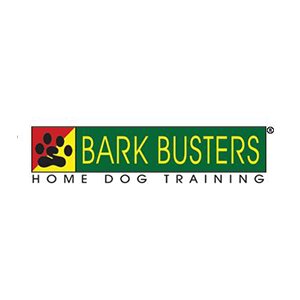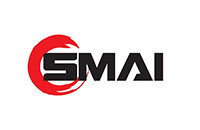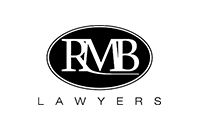Top 6 IP Mistakes of Start-Ups
Top 6 IP Mistakes of Start-Ups
May 6, 2016
Start-ups have a lot on their plate. However, one single IP issue can often spell the end of a start-up. A start-up will simply not have the time, money and management resources to deal with an IP issue, if it were to arise.
Start-ups will typically proceed in the vain hope that there are no IP issues lurking out there and hoping to “wing-it” if and when one arises.
Most start-ups hope and need to attract investment to progress. Most technology investors bear the scars of at least one IP dispute and run a mile at the mere “whiff” of one.
As a start-up, ask yourself, “Would I invest in a business that merely hoped to avoid an IP issue, or one that had actually taken steps to avoid the common and very avoidable IP issues?”
Here’s a list of how to avoid common IP issues:
1. FREEDOM TO OPERATE
If your start-up is aiming to create new technology (other than software), then it needs to be sure that it is not infringing any third party’s intellectual property rights. In this regard, it needs to ensure it is not infringing any patents or registered designs. Searches of these registers need to be undertaken by a trained eye – an IP lawyer or patent attorney familiar with searching these registers.
If your innovation is on the software side of things, then your freedom to operate task is to ensure that your developers are not using code they have developed for previous employers or customers.
2. BRAND CLEARANCE
As a start-up, you have flexibility around the naming and branding of your business. However, whatever name you decide on must be cleared before use. You will need to search the Trade Marks Register to ensure there are no pre-existing rights in or similar to your brand that are registered for the same or similar products as those of interest to your start-up. Google searches should also be undertaken to ensure there are no pre-existing unregistered trade mark rights that may interfere with your business’s proposed use of its trade mark. Again, a trained eye is best to do such searches, and if the brand is available for use, ownership in the name of the start-up should be immediately confirmed by applying to register it as a trade mark.
3. IP TRANSFER
Often start-ups begin with an idea and some level of development and testing before the start-up company is incorporated. The start-up company is viewed by the law as a separate legal entity to its founder(s) who are generally the shareholder(s) and director(s) of the start-up company. An investor will need to know and be provided with proof (by way of a signed transfer document) that the technology developed by the founder(s) is owned by the start-up company, being the company the investor is investing in.
4. IP STRATEGY
Re-inventing the wheel is often unnecessary, inefficient, costly and time consuming. Many great businesses are simply “systems integration” businesses, where efficient and innovative uses of existing technologies are integrated and packaged up as a product. Inevitably, know how and intellectual property may be created. Using the R&D effort of others may be your IP strategy. Often the answer to a technical problem has already been solved and presented in an existing patent specification, which if no longer in force is free for use. Alternatively, you may partner with or acquire the IP you need from a third party. From an investor’s perspective, it is important that your IP strategy is efficient, effective and brings a robust product to the market in the minimum amount of time.
5. IDENTIFYING IP
In a technology start-up, the investor is investing in the people, technology and the opportunity, or the “who”, “what” and “when”, respectively. For this reason, the start-up must be able to identify the intellectual property underpinning its technology – the “what” – and show to the investor that it owns or has an irrevocable right to use that technology.
6. NON-DISCLOSURE AGREEMENTS
Almost all start-ups begin with an idea. No IP right protects an idea. They protect the particular embodiment or expression of an idea. Until that embodiment or expression is created and the appropriate IP right applied for (if necessary) the idea can only be protected as confidential information. If the confidential information is disclosed freely or enters the public domain, it ceases to be confidential and is free for anyone else to use. That is, legal protection of your idea will be lost. Whilst not fatal, it means others can copy you, this reducing your start-up’s competitive advantage.
To get your start-up going, the likelihood is that you will need help for others – investors, partners, suppliers and perhaps even early adopting customers. Necessarily, you will need to tell them what your idea is to enable them to help you. To prevent unauthorised disclosure and use of your idea by them, you must have them sign a Non-Disclosure Agreement before you disclose your idea in any level of detail to them. In particular, do not tell others of the essence of your idea unless and until they have signed a Non-Disclosure Agreement. Do not be afraid to get your investors to sign a Non-Disclosure Agreement; they should be delighted.
Most of these precautions need to be done by IP lawyers, trade mark attorneys or patent attorneys. Whilst attempts to progress such matters by the start-up itself are commendable, until sanctioned or conducted by a trained professional, they cannot be considered to have the necessary “kudos” to persuade an investor that all is well with the start-up’s IP. Most are not overly expensive, and only the patent searches and trade mark registrations should be greater than the $2,000.00 mark.
Contact us today to AVOID IP MISTAKES
- Local and National – 0499 222 028
- International – + 61 499 222 028
- info@marshallip.com.au

Not sure where to start?
We're here to make it easy. Call or email us today.
















